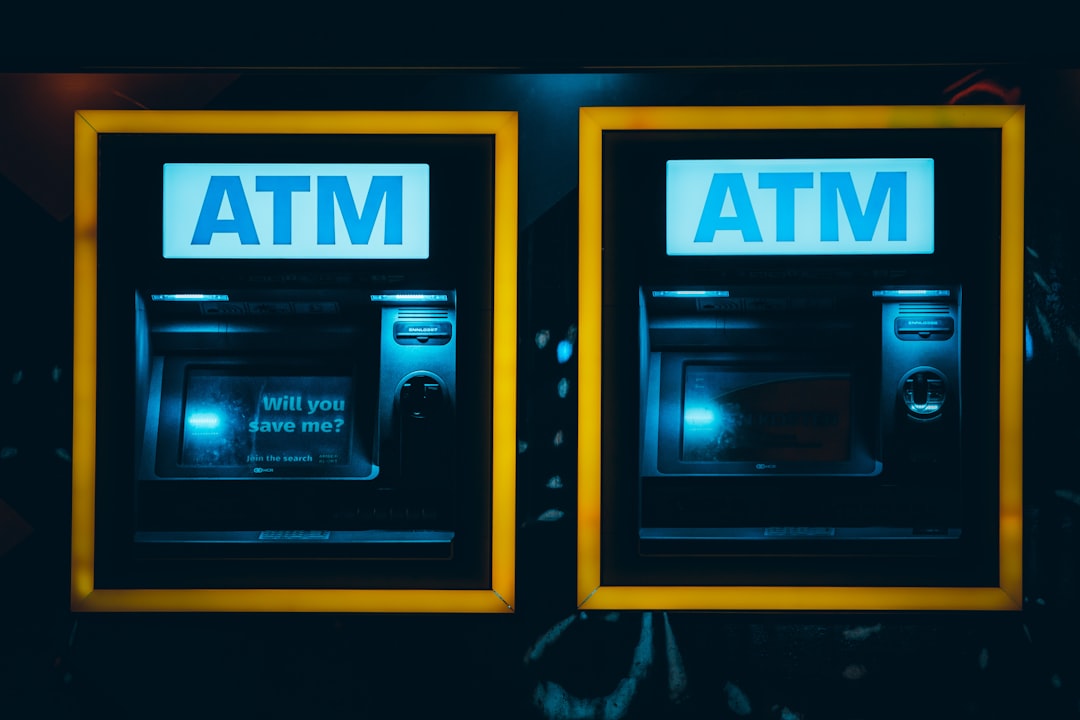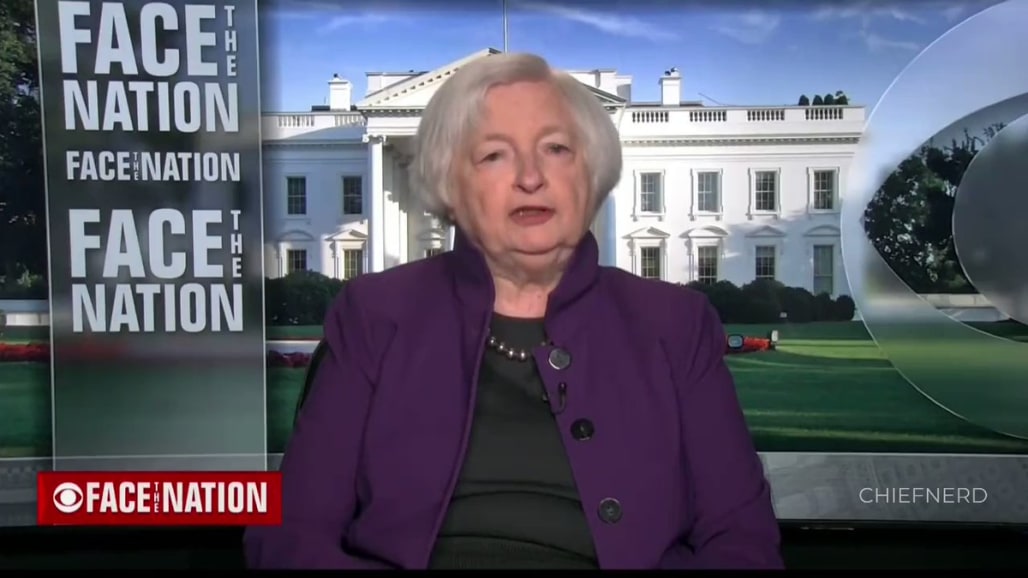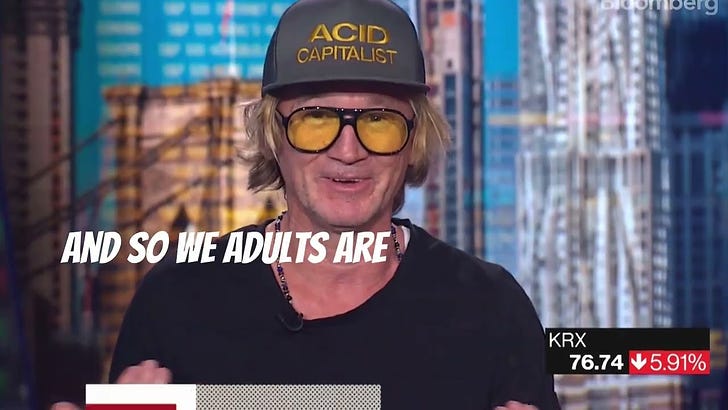All Wars are Bankers Wars
Why so many Wars at precise points in History? Answer, it was the Banksters
The Banksters rule over us, no point in denying it. We spend most of lives chasing Money which does not really exist if all Money is Debt and the nation is in fact in a Bankruptcy Emergency regulatory environment. But who knew all of that?

This classic, All Wars are Bankers Wars is one to remember and refer to when you are lost in time. Look back in history for some answers to see what happened before to know what will happen in the future. And the pattern that is emerging once gain with the bank failures of 2023 is that we are being taken to War once again for the Banks.
The Connections between Money, Magick and Water
Another masterful decode from The Truth Codes, this time on the Connections between Money and Water. As the US Dollar Sinks and we await the Tsunami that will hit NYC and bring down the the entire Ship of American Commerce.
How any Banks can even fail when they simply create money out of thin air is still a mystery. But they do fail and that shows you the level of greed and mismanagement that exist in this sordid space.
Silicon Valley Bank will be Bailed Out by Federal Reserve says Yellen - Part 3
Listen now (72 mins) | It is Sunday night and the high drama with Silicon Valley Bank continues. This podcast with John Perez and Mike Adams as they cover twin the SilverGate Bank and the Silicon Valley Bank Collapse, with one more Bank now seized by the Authorities. US government moves to stop potential banking crisis
All Wars Are Bankers Wars [English subtitles]
00:00 Introduction and Article Overview
The speaker introduces an article called "All Wars Are Bankers Wars" that he wrote over the weekend. He mentions that the article has gone viral and explains that all wars and assassinations can be traced back to private central bankers.
All Wars Are Bankers Wars
The speaker asserts that all wars are ultimately fought for the benefit of private central bankers.
He acknowledges that this concept may be difficult for some people to comprehend, but emphasizes the importance of understanding it.
The speaker states that many wars have been fought by the United States solely to impose private central banks on nations that did not want them.
01:00 American Revolution and Currency Act
This section discusses how the American Revolution was primarily fought against King George III's Currency Act, which forced colonists to abandon their own government-issued currencies in favor of printed banknotes borrowed at interest from the Bank of England.
American Revolution and Currency Act
The American Revolution was sparked by King George III's refusal to allow colonies to operate an honest money system.
Ben Franklin is quoted as saying that King George III's denial of an honest money system was a prime cause of the revolution.
After winning independence, the United States adopted its own value-based currency issued by the government, free from interest-bearing banknotes.
02:22 Private Central Banks' Influence
This section highlights how private central banks continued their efforts to acquire wealth after the American Revolution. They successfully established a new private central bank called The First Bank of the United States through Alexander Hamilton's support.
Private Central Banks' Influence
One year after Mayor Amschel Rothschild made his infamous quote about controlling a nation's money, the First Bank of the United States was founded.
By the end of its 20-year charter, the First Bank of the United States had nearly ruined the nation's economy while enriching its owners.
Congress refused to renew the bank's charter and expressed their intention to return to a state-issued, interest-free currency.
03:33 War of 1812 and Second Bank of the United States
This section discusses how private bankers, led by Nathan Mayer Rothschild, threatened war against the United States when Congress refused to renew the charter for The First Bank of the United States. As a result, a new private central bank called The Second Bank of the United States was established.
War of 1812 and Second Bank of the United States
Nathan Mayer Rothschild threatened a disastrous war if Congress did not renew The First Bank's charter.
Britain launched the War of 1812 with intentions to recolonize and force America back into slavery under Bank of England's banknotes.
Despite winning the war, Congress was forced to grant a new charter for another private bank that issued public currency as loans at interest - The Second Bank of the United States.
04:19 Andrew Jackson and No Bank
This section focuses on President Andrew Jackson's successful campaign against renewing The Second Bank's charter. He aimed to eliminate private control over America's money supply.
Andrew Jackson and No Bank
In 1832, Andrew Jackson campaigned for his second term as president with his slogan "Jackson and no bank."
True to his word, Jackson blocked renewal of The Second Bank's charter.
This decision led to economic improvements as private control over America's money supply diminished.
Andrew Jackson and the Second Bank
This section discusses the conflict between Andrew Jackson and the Second Bank of the United States, as well as the motives behind an assassination attempt on Jackson.
Andrew Jackson's Stand Against the Bankers
05:11 Andrew Jackson is determined to take deposits from the bank and annul its charter, despite being warned that it would ruin thousands of families.
05:29 An assassination attempt on Andrew Jackson fails, with the motive being that "money would be more plenty" if he were dead.
05:48 The public school system and corporate media are subservient to bankers' wishes, just like Monsanto and global warming cults conceal certain information.
Civil War
This section highlights how the financial dimension of the Civil War is often overlooked in history books, focusing on its global implications and Lincoln's actions.
Financial Dimension of the Civil War
06:13 The Civil War had global implications but is commonly portrayed as an internal dispute over slavery.
06:33 The bankers saw an opportunity for debt harvest when the Confederacy seceded and offered to fund Lincoln's efforts at high interest rates.
06:53 Lincoln issued a new government currency called Greenback, posing a threat to central bankers' wealth and power.
07:14 European support for the Confederacy was influenced by private bankers' interests, but Russia came to aid Lincoln's union during this crisis.
Formation of The Federal Reserve
This section focuses on significant events in 1913 that transformed America's economy, including the formation of a new banking cartel known as The Federal Reserve.
08:27 In 1913, European private central bankers collaborated with American financial partners to form The Federal Reserve.
08:45 The name was changed to grant a quasi-governmental image, but it remains a privately owned bank.
09:06 The Federal Reserve successfully rebuffed a Freedom of Information lawsuit, claiming it is not part of the US government.
09:28 Congress passed the 16th income tax amendment and The Federal Reserve Act in 1913, significantly impacting the nation's economy.
09:42 Questionable Amendments and The Federal Reserve Act
This section discusses the questionable ratification of the 16th amendment and the passing of The Federal Reserve Act during Christmas holiday in 1913.
09:42 A US district court judge suggests that a sufficient number of states did not ratify the 16th amendment.
10:07 Congress passed The Federal Reserve Act while members opposed to it were away for Christmas holiday.
10:21 The Impact of the Federal Reserve Act
This section discusses the consequences of the Federal Reserve Act and its impact on the United States.
President Wilson's Regret
President Wilson regretted his decision to establish the Federal Reserve in exchange for campaign contributions.
He expressed his unhappiness, stating that he had unwittingly ruined his country by allowing a small group of dominant men to control it.
World War I and Germany's Role
Prior to the creation of the Federal Reserve, there was no world war.
World War I started between Austria-Hungary and Serbia but quickly shifted focus to Germany.
Germany's industrial capacity was seen as an economic threat to Great Britain, which led to Germany being portrayed as the main opponent in World War I.
Economic Situation in Great Britain and Germany
Great Britain's pound was already declining due to excessive emphasis on banking and finance rather than agricultural and industrial development.
Similarly, in the United States today, financial operatives prioritize Wall Street games while neglecting other sectors like manufacturing and agriculture.
German Industrial Development
Pre-war Germany had a private central bank under strict government control.
Investments were guaranteed for internal economic development, leading to Germany becoming a major manufacturing power.
However, following the Treaty of Versailles, Germany was ordered to pay war costs despite not starting the war. This led to massive inflation during the Weimar Republic.
Rise of National Socialists in Germany
The collapse of the Weimar Republic economically allowed National Socialists (Nazis) to take power.
They issued their own state currency based on value rather than debt, freeing them from paying interest on money circulation.
This resulted in an improvement in German industry and prosperity.
13:17 Winston Churchill's Views on Germany
This section highlights Winston Churchill's views on Germany and the reasons behind Europe's mindset leading up to World War II.
Churchill's Quotes
Churchill expressed concerns about Germany's merchandise and its potential impact on the aftermath of World War I.
He stated that they would force a war upon Hitler and that Germany becoming too powerful needed to be crushed.
Churchill openly declared that the goal of the war was the destruction of Germany, emphasizing economic motives.
Threat to Private Central Banks
Germany's state-issued value-based currency posed a direct threat to private central banks worldwide.
In response, a global boycott against Germany was organized by nations threatened by its economic power.
15:03 The Real Reasons for World War II
This section discusses the real reasons behind World War II and how public anger in Germany provided an excuse for war.
Economic Motives
The war was not only about abolishing fascism but also about conquering sales markets.
Nations threatened by Germany's economic power sought an excuse to go to war.
Hitler's actions during the boycott fueled public anger in Germany, providing an opportunity for other nations to initiate war.
15:57 The Attempted Coup to Overthrow the US Government
This section discusses a little-known history before World War II involving Wall Street financiers and Marine Corps Major General Smedley Butler. The Wall Street bankers had supported Hitler and Mussolini's rise to power, and they wanted a fascist dictatorship in the United States instead of Roosevelt's "New Deal". They recruited General Butler to lead an overthrow of the US government, but he exposed the plot to Congress.
Wall Street's Support for Fascism
Brown Brothers Harriman in New York financed Hitler until war was declared with Germany. 16:17
Wall Street financiers preferred a fascist dictatorship in the US over Roosevelt's "New Deal" as it threatened their business interests. 16:34
Recruitment of General Butler
Wall Street tycoons recruited Marine Corps Major General Smedley Butler to lead the coup d'état due to his popularity with soldiers. 17:12
General Butler pretended to go along with the scheme but then exposed it to Congress. 17:33
Congress' Response and Roosevelt's Involvement
Congress, influenced by Wall Street bankers, refused to act upon learning about the planned coup. 17:51
Roosevelt demanded the arrest of the plotters but was reminded that their friends on Wall Street could collapse the economy and blame him if they were imprisoned. He couldn't take action until World War II began. 17:51
Aftermath and Public Awareness
Many of the plotters were prosecuted under the Trading with the Enemy Act during World War II. 18:07
The revelation of the coup attempt by Smedley Butler to Congress was initially dismissed as a rumor but was finally released to the public in 1967. 18:29
20:18 Kennedy's Executive Order 11110
This section discusses President John F. Kennedy's understanding of private central banking and his efforts to return to a system of economics based on United States Notes.
Understanding Private Central Banking
President Kennedy understood the predatory nature of private central banking and why Andrew Jackson fought against the Second Bank of the United States. 20:26
Executive Order 11110
President Kennedy issued Executive Order 11110, which ordered the US Treasury to issue a new public currency called the United States Note. 20:31
These United States Notes were not borrowed from The Federal Reserve but created by the US government and backed by silver stockpiles. It represented a return to the economic system on which the US was founded. 20:42
Note that this summary is based solely on the provided transcript and may not capture all details or nuances from the video.
21:17 United States Notes Withdrawn and Destroyed
This section discusses the withdrawal and destruction of United States Notes from circulation.
21:17 During this time, United States Notes were pulled from circulation and destroyed.
21:22 Appointment of John J. McCloy to the Warren Commission
This section highlights the appointment of John J. McCloy to the Warren Commission after Kennedy's assassination and questions his qualifications for investigating a murder.
21:22 Following Kennedy's assassination, John J. McCloy, President of the Chase Manhattan Bank and President of the World Bank, was named to the Warren Commission.
21:22 The speaker expresses doubt about McCloy's qualifications for investigating a murder, stating that being a banker does not make him suitable for such a role.
21:41 It is suggested that the Warren Commission was formed to cover up what was really going on regarding the assassination.
22:17 The presence of John J. McCloy on the Warren Commission may have been to ensure that the financial dimensions behind the assassination were never revealed to the American public.
22:03 Examining Financial Dimensions Behind Wars
This section emphasizes the need to examine the financial dimensions behind wars and questions whether they are driven by profit for private central bankers.
22:03 As we enter what will likely be described as World War III in future history, it is important to understand why we are involved in these wars.
22:03 The speaker raises questions about why children are being killed and crippled in wars.
22:17 It is suggested that these wars may be driven by the profit motives of private central bankers.
22:36 The Bretton Woods Agreement
This section provides background information on the Bretton Woods Agreement and its impact on global finance.
22:36 In 1944, major world economic powers met at Bretton Woods to establish the Bretton Woods Agreement for international finance.
22:36 The agreement resulted in the US dollar replacing the British Pound as the global trade and reserve currency.
22:56 It is mentioned that this change in currency dominance may have been a condition demanded by Roosevelt in exchange for US entry into World War II.
23:16 The signatory nations of Bretton Woods agreed to tie their currencies to the US dollar, with two conditions.
23:16 The first condition was that the Federal Reserve would refrain from over-printing dollars as a means of looting real products from other nations.
23:39 The second condition was that the US dollar would always be convertible back to gold by the US government at a fixed rate of $35 per ounce.
24:00 Overprinting Paper Dollars
This section discusses how overprinting of paper dollars by the Federal Reserve led to perceived American prosperity in the 1950s and 1960s.
24:00 Despite assurances of no overprinting, it is stated that the Federal Reserve started overprinting paper dollars, which were sent to other nations under Bretton Woods.
24:00 In return for accepting these paper notes as worth $35 per ounce of gold, foreign nations had to send back real raw materials, goods, and produce to the United States.
24:00 The perceived American prosperity of the 1950s and 1960s was attributed to this exchange, where foreign nations had to send valuable resources in exchange for paper dollars.
24:19 France's Return of Paper Notes
This section discusses France's decision to return paper notes for gold, leading to the suspension of gold convertibility by the US Federal Reserve.
24:19 In 1970, France decided to exercise its option under Bretton Woods and return all the paper notes it held for gold at the agreed-upon rate of $35 per ounce.
24:39 However, the United States did not have enough gold reserves to redeem all those paper notes.
24:39 As a result, on August 15th, 1971, Richard Nixon temporarily suspended gold convertibility of US Federal Reserve Notes, effectively ending Bretton Woods.
25:03 Collateralization of Loans and Gold Reserves
This section highlights concerns about the collateralization of loans borrowed by the United States and questions whether there is enough gold to back them.
25:03 The United States had been collateralizing its loans from other governments and foreign investors with its gold reserves.
25:20 With awareness that there was not enough gold to redeem all Federal Reserve Notes, lenders started questioning whether the US government had sufficient gold as collateral for its outstanding debts.
25:30 Foreign nations became nervous about loaning additional money without proper collateral.
25:51 Environmental Programs as Collateral
This section discusses Richard Nixon's establishment of environmental programs as a means to pledge public lands and their mineral resources as collateral on the national debt.
25:51 Richard Nixon founded the environmental movement with programs like "wilderness zones," "roadless areas," "heritage rivers," and "wetlands."
26:11 The speaker suggests that these programs were a land grab under the guise of environmental protection.
26:11 The purpose of this land grab was to pledge pristine lands and their mineral resources as collateral on the national debt.
26:11 These EPA programs now cover almost 25 percent of the entire nation and are pledged as collateral on government borrowing.
26:33 The Petrodollar Deal
This section discusses the petrodollar deal and its impact on US foreign policy in the Middle East.
The Petrodollar Deal
26:33 In the 1970s, the United States approached oil-producing nations in the Middle East with a deal.
26:46 The deal involved these nations selling their oil exclusively for US dollars, and in return, the US would guarantee their military safety.
27:06 This arrangement, known as the petrodollar, allowed the US to back its currency with oil instead of gold.
27:17 However, as America's manufacturing and agriculture declined, oil-producing nations faced challenges in spending their accumulated US dollars.
27:34 European products were often more superior and less costly than those from the US. Additionally, some nations avoided buying US agricultural exports due to concerns about GMO crops.
27:46 Israel's actions also raised doubts about whether the US could uphold its end of the petrodollar agreement.
Shift Away from Petrodollar
27:55 Oil-producing nations began considering selling their oil for currencies other than the dollar.
28:01 Iraq demanded to sell its oil for euros in 2000 and was granted permission by the United Nations under the "oil for food" program in 2002.
28:16 In response to this shift away from the petrodollar, the United States re-invaded Iraq in 2003 and reinstated selling Iraqi oil only for US dollars.
28:26 Following 9/11, there was a clear policy shift towards supporting Israel's aggressions rather than being an impartial broker of peace.
28:48 Muammar Gaddafi's introduction of the Gold Dinar as a trade currency threatened the global hegemony of the dollar, leading to US intervention in Libya.
29:12 The US invasion aimed to maintain control over Libya's oil and prevent the rise of alternative currencies like the Gold Dinar.
Targeting Nations and Central Banks
29:31 General Wesley Clark revealed that the US had plans to "dollarize" seven nations: Iraq, Syria, Lebanon, Libya, Somalia, Sudan, and Iran. Venezuela later became a potential target as well.
30:11 Notably, none of these targeted nations were members of the Bank of International Settlements (BIS), which is considered the private central bankers' central bank.
30:26 The US aims to force Iran to sell its oil only for dollars and accept a privately owned central bank.
30:34 The reasons given for these wars and interventions are often varied, such as bringing democracy or saving people from oppression. However, they often result in pro-US dictatorships being imposed.
30:53 Reasons Behind Wars and Interventions
This section explores common justifications given for wars and interventions by the United States.
Common Justifications
30:53 The reasons provided for wars and interventions are often diverse and include bringing democracy or saving people from oppression.
31:11 However, historical examples show that US interventions have frequently led to pro-business, pro-Wall Street dictatorships being imposed instead.
Examples include the overthrow of Iran's democratically elected government in 1953 and Chile's elected government in 1973.
31:34 Private Central Banking as a Form of Enslavement
This section discusses the role of private central banking in enslaving people through debt and the manipulation of financial systems.
31:34 The excuse for invasion often used is "Weapons of mass destruction."
31:42 Assassinations are disguised as acts committed by lone individuals to hide the true agenda.
32:04 Private central banking creates more debt than money, making it impossible to escape their control.
32:12 Private central banking is not based on science but rather arbitrary rules designed to benefit bankers.
32:36 The belief in private central banking is akin to a religion.
33:01 Rule by debt, enforced by private central bankers, is recognized as illegitimate.
Financial Dictatorship and Wars
33:23 Rule by private central bankers issuing currency as loans at interest is considered equally illegitimate.
33:41 Private central banks serve their owners' interests, not those of the people or nation.
34:02 Financial dictatorship is maintained through wars and assassinations.
34:22 Nations attempting to break free from private central banks face destruction from other enslaved nations.
34:40 The "Clash of Civilizations" narrative propagated by media conceals a war between banking systems.
35:00 Muslims are portrayed negatively because they refuse to be enslaved by usury practices.
Risks and Consequences
35:24 The private central bankers are willing to risk global destruction for their greed.
35:49 War is fought for the benefit of private bankers, while the public is deceived by propaganda.
36:10 Wars are used to deepen debt and maintain the pyramid scheme of borrowing.
36:26 Reluctance to borrow leads to government borrowing and eventually large-scale wars.
Note: This summary provides an overview of the discussed topics in a clear and concise manner, using timestamps when available.
37:00 Private Central Banking and Wars
This section discusses the role of private central banking in perpetuating wars and poverty.
Private central banking is the richest harvest for bankers, as it allows them to impose their will on nations through bribery, blackmailing, and assassinations.
As long as private central banks exist, poverty, hopelessness, and endless world wars will continue until the Earth itself is sacrificed. The path to true world peace lies in abolishing all private central banking.
Knights Templars and Usury
Prior to the Knights Templars, Christianity forbade usury due to its negative impact on economies. However, the Templars were able to obtain a special dispensation from the Pope to engage in what they called "renting money," pioneering modern predatory banking practices.
French King Philip IV arrested and executed the Templars in an effort to break free from their control over the economy.
Intervention against Private Central Bankers
Governments should consider following King Philip IV's example by simultaneously seizing control of private central banks worldwide to prevent them from moving between nations and continuing their exploitative practices.
Private central bankers are addicted to other people's money and are destroying the world just like drug addicts destroy their communities. It is time for an intervention by becoming private central banking heretics.
Recognizing the True Cause of Wars
The true cause of wars is not terrorism but a war between banking systems, with predatory private central banks seeking to eradicate any nation or ruler that operates outside their control. Supporting these bankers is not worth fighting or dying for.
42:23 The Common Enemy of Humankind
This section discusses the issue of private central banks and their control over the public currency, leading to a lack of economic freedom.
Private Central Banks and Economic Enslavement
The common enemy of all humankind is private central banks issuing the public currency as a loan at interest. (0:42:23)
These banks will go to great lengths, including instigating global wars, to maintain their control over the economy. (0:42:23)
This system of enslavement prevents us from being truly free and hampers our future economic well-being. (0:42:23)
Lack of Freedom and Media Manipulation
Despite what the media tells us, we are not truly free but rather slaves to the system. (0:42:43)
Our chains of slavery are made of paper, specifically the Federal Reserve Note. (0:42:43)
Only a few leaders have attempted to challenge this system, often with fatal consequences. (0:42:43)
Global Stand Against Private Central Banks
If people worldwide unite and simultaneously reject private central banks, significant change can be achieved. (0:42:43)
Who knew that Hitler was one of the few men in history to abolish a central bank? Those who rise up against the Banks meet rather harsh endings, much like Gaddafi.
The Truth about the Banking Crisis from Hugh Hendry
Is it Time to Panic based on the preserve actions of the Federal Reserve? Answer, according to Acid Capitalist as per his Hat is Yes. Hence the Truth about the Banking Crisis, told in manner not seen much on TV. BS Free Reporting was our stance, thus his video has to be covered because is he cutting out the Wall Street Speak BS.
Predictions for 2023 and things Artificial
Listen now (49 mins) | Some more predictions for 2023 as per the Health Ranger. Will it be the Year of Contraction and Downsizing because the Free Money Printing Days are coming to an End in 2023 or will they be able to squeeze out another Year of a Faux Economy? Is this Year going to the End of Artificial Money and an Artificial Economy?
For we wrestle not against flesh and blood, but against principalities, against powers, against the rulers of the darkness of this world, against spiritual wickedness in high places.
Ephesians 6:12
- Corona Times News
FAIR USE NOTICE
The views expressed by guests, subjects and speakers are their own and their appearance on this website does not imply if any way an endorsement of them or any entity they represent. Views and opinions expressed by the speakers do not necessarily reflect the views of Corona Times News. THIS CONSTITUTES A 'FAIR USE' OF ANY SUCH MATERIAL AS PROVIDED FOR PURSUANT TO TITLE 17 UNITED STATES CODE SECTION 106A-117 REGARDING USE OF COPYRIGHT MATERIAL.
DISCLAIMER
The content provided on The Corona Times News is for general information and entertainment purposes only. No information, materials, services, and other content provided in this post constitutes solicitation, recommendation, endorsement or any financial, investment, medical, health, educational, or other advice. Seek independent professional consultation in the form of legal, financial, and fiscal advice before making any investment decisions. Always perform your own due diligence. And don't forget to have a wonderful day.








